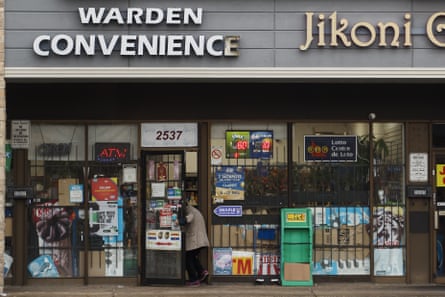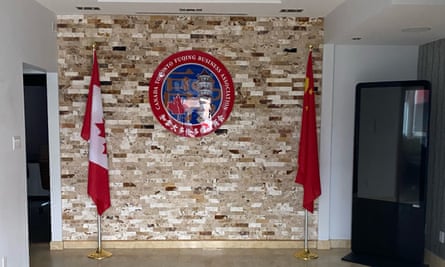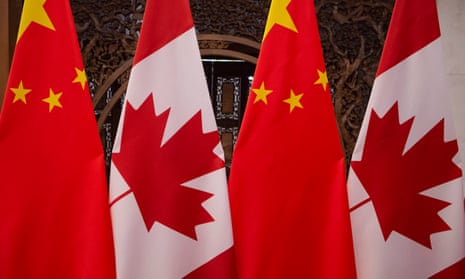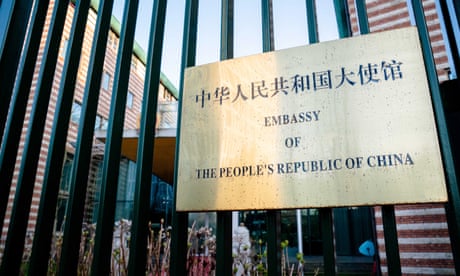Chinese dissident foils CCP 'overseas police' operation in Netherlands and elsewhere
Dissident warns Taiwan to protect its freedom, 'never trust anything CCP says'
TAIPEI (Taiwan News) — A Chinese dissident living in the Netherlands cooperated with Dutch police officers on Nov. 7 to arrest a Chinese “overseas police officer” who had been threatening the dissident’s safety.
Members of an “Overseas Police Service Station” established by Chinese authorities were harassing the young man, Wang Ching-yu (王靖渝). Wang is wanted by Chinese authorities for his support of the Hong Kong democracy protests and for remarks he made online about the People’s Liberation Army, reported RTI.
Wang spoke with Taiwanese media on Nov. 10 to explain what happened. According to Wang, a CCP agent contacted Wang on Nov. 6 saying that he would “kill him” if he did not cooperate.
The next day, Wang received a phone call when the agent threatened to “arrest” Wang in his home if he did not go to The Hague Railway Station for a meeting. After both incidents, Wang was in contact with the Dutch police. At the scheduled meeting place, 10 Dutch police officers arrived to arrest the CCP agent and investigate his activity in the country.
Wang said that European governments are aware of China’s extrajudicial activity overseas and that they are taking steps to combat the illegal activity. Wang also shared a message for Taiwan, “Don’t trust anything the CCP says, and protect your democracy and freedom,” per RTI.
If China is allowed to intervene in Taiwan’s governance, then it will become the same as China, leading to dictatorship and repression, said Wang.
In September, the non-governmental organization Safeguard Defenders released a report entitled 110 Overseas: Chinese Transnational Policing Gone Wild. It examined “Overseas Police Service Stations” established by provincial governments in China. The NGO report revealed that at least 54 service stations were operating in 21 countries across Europe.
At these service stations, Chinese “police officers” work with China’s United Front network to locate and harass Chinese citizens living abroad. The CCP agents regularly threaten targets and their families as a means of coercing them to return to China, where they will likely face imprisonment.
Fortunately, in the two months since the report was released, there have been some major developments that will likely restrict the ability of CCP agents to operate in Europe unimpeded. Several “service station” offices have already been shut down, with 14 governments launching investigations into their illegal activity.
In the Netherlands, police began investigating two overseas Chinese police stations in October, reports DW. It is likely they were aware of the individual harassing Wang before he was apprehended this week.
Further, on Nov. 3, the European Court of Human Rights issued a landmark decision blocking the extradition of a Taiwanese citizen to China. Observers hope the decision will mark an end to the arbitrary extradition of Taiwanese citizens to China and drastically reduce the Chinese government’s ability to involuntarily repatriate Chinese citizens fleeing from the authoritarian regime in Beijing.
Wang’s case in the Netherlands is being processed. The unidentified CCP agent is likely to face criminal charges, according to reports.
‘A brazen intrusion’: China’s foreign police stations raise hackles in Canada
Beijing says Toronto locations are ‘services stations’ to renew licenses – but China watchers say they monitor and pressure country’s diaspora
At a strip mall convenience store sandwiched between a hotpot restaurant and hair salon on the outskirts of Toronto, a clerk serves a steady flow of customers on a drizzly autumn morning.
In an office park a few miles away, a travel agent sorts through passports, arranging visas and booking tickets for her Chinese clientele.
And on a quiet street in a nearby suburb, a resident has grown frustrated that he and his family have been roped into an international row over a supposed network of clandestine Chinese police stations.
“I don’t know what this is all about,” the man said. “There’s some kind of mistake. We have nothing to do with this. Look around. This is just a house.”
All three addresses have been linked to a purported network of unsanctioned and illegal Chinese “police stations” around the world, used to exert pressure on exiles and expatriates.
The allegations came after a string of cases around the world in which China has been accused of overstepping diplomatic and legal norms to persecute its citizens far beyond its borders.In a report released last month, the Madrid-based NGO Safeguard Defenders detailed 54 alleged Chinese police stations around the world, prompting authorities in a number of countries, including Germany, the Netherlands and Canada, to launch police investigations.

“It’s crazy how brazen they’ve become with these operations,” said Laura Harth of Safeguard Defenders. “The message from the ministry of foreign affairs – that you are not safe anywhere, that we can find you and that we can get to you – is very effective.”
The operations are linked to police in Fuzhou, a city in China’s Fujian province, said Harth, and are set up in close cooperation with the United Front work department, an organization in Beijing that monitors and attempts to influence Chinese nationals abroad.
In most countries the “stations” consist of individuals with ties to China’s security agency or intelligence network. Ireland is so far the only country where the police station was explicitly advertised as such.
“In most cases, it seems to fly under the radar, which obviously makes sense, given the activities they’re involved in,” said Harth.
The alleged aim of the stations is to force citizens to return home to face China’s justice system. In June, China’s vice-minister of public security, Du Hangwei, said that in the past year the government had “persuaded” 210,000 people to return to face charges for telecom fraud.
Recently unsealed documents from a New York court provide a glimpse into the extent to which China is alleged to have engaged in a foreign interference campaign. In one case, a Chinese citizen living in Canada was pressured to return to China to face charges of embezzling nearly C$380,000 (US$280,000) in public funds.
In the court document, the US alleges the pressure campaign is related to China’s Central Commission for Discipline Inspection and Operation Fox Hunt, a sprawling campaign against members of the diaspora which has been used to target corruption and dissent.
The allegations – and a recent incident in which a diplomat attacked protesters outside the Chinese consulate in the British city of Manchester – further underscore the escalation of tactics used by the Chinese government against the pro-democracy movement abroad.
China’s embassy in Canada denied that the locations were staffed by police officers, but nonetheless confirmed the addresses, describing them as “services stations” where expatriates can renew driver’s licenses and access other services.
“For services such as driver’s license renewal, it is necessary to have eyesight, hearing and physical examination. The main purpose of the service station abroad is to provide free assistance to overseas Chinese citizens in this regard,” the embassy said in a statement, adding that the stations’ staff were volunteers and “not involved in any criminal investigation or relevant activity”.
But no one at the three known addresses in Toronto said they knew about the existence of the “services stations”. The travel agent rents space within two units occupied by the Canada Toronto Fuqing Business Association, which has also denied any knowledge of the police stations.
The allegation that Chinese police officers are operating on Canadian soil is likely to raise tensions once again between Ottawa and Beijing, a year after the two countries ended their standoff after the arrests of the Huawei executive Meng Wenzhou in Canada and the Canadian businessmen Michael Kovrig and Michael Spavor in China.
“It’s an outrageous and brazen intrusion on Canadian sovereignty – especially since Beijing has admitted that these stations exist and has confirmed their locations,” Michael Chong, a Conservative lawmaker and foreign affairs critic, said. “And the establishment of these illegal police stations is a symptom of a much deeper problem.”
The Chinese government has interfered in democracies for years, he said, pointing to allegations of election interference in Canada’s most recent federal election, as well as instances in which Uyghur people, Tibetan students and Hong Kong pro-democracy activists in Canada have faced harassment.
Chong, who is barred from visiting China because of his outspoken criticism of Beijing, said Canada’s federal government needed to “haul in ambassador [Cong Peiwu] for a démarche” – or official diplomatic reprimand – and demand an explanation for the “violation of international law”
Chong called on the government to review the accreditation of all Chinese diplomats in the country, to ensure they are not involved in the operation, as well as the immigration status of anybody working out of the offices who is involved in “intimidation operations”.
“Beijing doesn’t think democracies are capable of standing up to the authorities of Beijing on their own soil. And that has to end,” Chong said.
The federal government has not publicly commented on the police stations and the RCMP has said little, only confirming the existence of an investigation.
But for dissidents, the revelations only confirm their perception that China has grown increasingly brazen.

Cheuk Kwan of the Toronto Association for Democracy in China said that the alleged police stations marked an escalation in Beijing’s tactics.
“There have been telephone calls in the middle of the night that family members won’t find work if you don’t cooperate with the government, or that your parents’ phone number will be posted online and they’ll be harassed. Or with Uyghurs, that the rest of your family will be put in camps,” he said. “[But] the physicality of this – that there are actual locations – is alarming. This is simply a visible kind of landmark for the coercion, harassment, that has long existed.”
The RCMP says it has advised residents to contact police if they experience harassment by a foreign government. But Cheuk said he and others have repeatedly asked the federal police force to intervene in cases of harassment and intimidation only to be told the issues are best dealt with by local police, or even police back in China.
“They would just tell us this was a family feud or something that didn’t merit investigation,” he said. “And that’s the most insidious part of this, the naivety [of the federal police] – of them not taking it seriously for so long.”
Police investigate claim of secret Chinese police stations in Canada
RCMP looking into ‘reports of criminal activity’ surrounding facilities allegedly used to pressure Chinese nationals abroad

Canada’s federal police force is investigating reports that clandestine Chinese “police stations” are operating in Toronto amid reports of a global network used to target overseas dissidents.
The Royal Canada Mounted Police said it was investigating “reports of criminal activity in relation to the so-called ‘police’ stations” but did not specify the location of the sites.
The police also warned that “foreign states may seek to intimidate or harm communities or individuals within Canada”.
The revelations come days after the Dutch government said it was investigating two suspected stations.
The stations were first identified by Safeguard Defenders, a Spanish civil rights group which alleged the Fuzhou and Qingtian police agencies had between them opened 54 “overseas service centres” in 25 cities across 21 countries, including Canada.
Safeguard Defenders identified a residential home, commercial building and convenience store in the greater Toronto area as the locations of the suspected operations.
China’s embassy has denied the buildings are staffed by police, instead suggesting they are “services stations” meant to offer consular and bureaucratic assistance.
“Due to the Covid-19 epidemic, many overseas Chinese citizens are not able to return to China in time for their Chinese driver’s licence renewal and other services,” the embassy said in a statement. “For services such as driver’s licence renewal, it is necessary to have eyesight, hearing and physical examination. The main purpose of the service station abroad is to provide free assistance to overseas Chinese citizens in this regard.”
The embassy also said the staff were volunteers and not police officers, adding: “They are not involved in any criminal investigation or relevant activity.”
But recently unsealed court documents in New York corroborate accusations that China has engaged in a foreign interference campaign, harassing and surveilling Chinese nationals abroad. In one case, a Chinese citizen living in Canada was pressured to return to China to face charges of embezzling nearly C$380,000 (US$280,000) in public funds.
In the court document, the US alleges the pressure campaign is related to China’s Central Commission for Discipline Inspection and Operation Fox Hunt, which has been used to target both corruption and dissent.
Canadian lawmakers have previously warned of the issue. At a House of Commons special committee on Canada-China relations in early October, the Conservative member of parliament Michael Chong asked Canada’s foreign affairs ministry about the existence of the police stations.
Weldon Epp, director general of North Asia and Oceania at Global Affairs Canada said there was space for “legitimate police liaison cooperation” between countries.
“But the allegations reported in the press would fall well outside of that, and we would have deep concerns if they proved to be true.”
The allegations are likely to once again strain relations between Ottawa and Beijing, which have remained tense following a string of disputes between the two nations, including the arrests of the Huawei executive Meng Wenzhou, and the Canadian businessmen Michael Kovrig and Michael Spavor.









No comments:
Post a Comment
Comments always welcome!